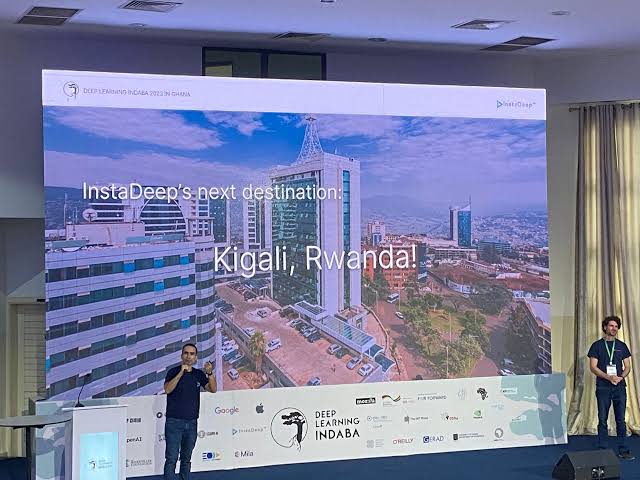InstaDeep, an AI company with roots in Tunisia and a central office in London, wants to open an office in Kigali, Rwanda’s capital city.
Karim Beguir, the CEO of InstaDeep, said recently at Deep Learning Indaba, the yearly meeting of the African machine learning and artificial intelligence community, whose goal is to improve African AI.
The Kigali office will open with six people who will do the study on artificial intelligence on the continent. “It makes sense to send and grow our team in Kigali as Rwanda becomes a leader in building the economy of the future. “We’re excited to tell this group of African AI researchers and developers at the Deep Learning Indaba,” Beguir said.
The AI startup employs approximately 240 people across Tunis, London, Lagos, Dubai, Berlin, Cape Town, Paris, Boston, and San Francisco.
Kigali gives an excellent opportunity for InstaDeep to maintain growing AI in Africa and build sustainable solutions for the continent and beyond, says the head of AI research in Africa, Arnu Pretorius. Rwanda hosted the first AI worldwide conference, ICLR, in Africa, demonstrating its policy leadership. Having an office in Kigali allows us to give additional possibilities to African AI talent from around the continent.”
According to Deep Learning Indaba, Pretorius will lead the Kigali office. He was recently awarded the Kambule Doctoral Award, which recognises and encourages doctoral candidates at African universities to excel in research and writing in computational and statistical sciences.
Read also: BioNTech acquires Tunisian startup InstaDeep for £562 million
Rwanda as Africa’s AI hub
Rwanda ranks among the top ten African AI readiness index countries. Rwanda was among the few African countries to draft a national AI policy with six priority areas[pdf]: AI literacy, infrastructure, data strategy, public and private sector AI adoption, and ethical implementation in April 2023. East Africa needs $76.5 million to implement the policy in five years.
The policy is a big step towards launching Rwanda’s AI ecosystem and achieving its goals for national growth. Paula Ingabire, Rwanda’s minister of ICT and innovation, says that we are setting ourselves up to be the best place in Africa for playing with and making trustworthy AI technology that works well in Africa.
BioNTech, a German biotech company, bought InstaDeep earlier this year for £362 million in cash and unnamed BioNTech shares. The remaining £200 million will be paid based on how well InstaDeep does in the future.
Uur Sahin, CEO and co-founder of BioNTech, said at the purchase, “The acquisition of InstaDeep allows us to use the rapidly changing AI capabilities of the digital world in our technologies, research, drug discovery, manufacturing, and deployment processes.”
Now that InstaDeep is a part of the company, it’s important to remember that this is not the first time BioNTech will start an important project in Rwanda. The German biotech business started building its first factory in Kigali, Rwanda, last year. This factory will help make mRNA vaccines in Africa.
About BioNTech
BioNTech, situated in Mainz, Germany, develops and manufactures active immunotherapies for patient-specific illness treatment. It develops mRNA-based pharmaceutical candidates for individualized cancer immunotherapies, infectious disease vaccines, protein replacement therapies for rare diseases, engineered cell therapy, novel antibodies, and small molecule immunomodulators.
The company created an injectable mRNA-based human treatment to bring individualized cancer immunotherapy to clinical trials and construct its manufacturing process.
BioNTech was started in 2008 based on the study done by Uur Ahin, Ozlem Türeci, and Christoph Huber. MIG Capital and AT Impf gave the company a start-up loan of €150 million. The company’s primary goals are to make tools and drugs for individualised cancer immunotherapy and to develop and test them.
Andreas and Thomas Strüngmann, Michael Motschmann, and Helmut Jeggle started the company. In 2009, EUFETS and JPT Peptide Technologies were both bought out.
Katalin Karikó’s work on mRNA at the University of Pennsylvania helped Pfizer and BioNTech make the COVID-19 vaccine. In 2013, she became a senior vice president at BioNTech.




